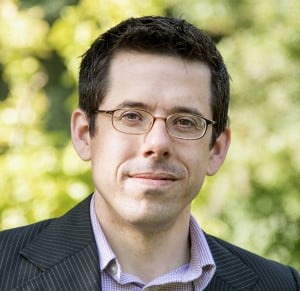 Dr Jon Coutts is a Canadian who recently joined the faculty at Trinity College, Bristol; he blogs at http://thissideofsunday.blogspot.ca. I conducted a virtual interview with him exploring issues around ministry and ministry training, and I think his answers are truly fascinating. We have things to offer other contexts—but we also have important things to learn from them.
Dr Jon Coutts is a Canadian who recently joined the faculty at Trinity College, Bristol; he blogs at http://thissideofsunday.blogspot.ca. I conducted a virtual interview with him exploring issues around ministry and ministry training, and I think his answers are truly fascinating. We have things to offer other contexts—but we also have important things to learn from them.
1. Where are you from, and how did you get here?
Before moving to England I spent 39 years in the Christian and Missionary Alliance denomination, living in every major city in Western Canada (as well as a few points in between). Born and raised the son of a pastor, I was dedicated, baptized, married, trained, and then (after a time of resistance) ordained as an evangelical minister myself.
Having cut my teeth on the writings of G.K. Chesterton and C.S. Lewis, I have always felt like a part of me grew up in Britain. I had never paid much attention to my family tree, but in 2009 when I was accepted to study in Aberdeen, Scotland, my grandparents pointed out to me that four generations ago this is exactly where I had come from! It has been at the same time rich and challenging to be a migrant in the place where I actually originate–especially given all the controversy about migration these days.
How I got here was a bit of surprise. After my PhD years in Scotland I went back to pastoring in British Columbia, hoping to make a good long run of it. Although I loved that congregation, for various reasons that ministry had a shorter lifespan than I had hoped, and my realization of this in the summer of 2014 coincided with the opportunity to apply for what looked like a dream job at Trinity College in Bristol. Teaching theology and training future ministers! Although a big part of me will always be a pastor, this call felt like the end of a long vocational journey, and the start of what I hope will be a good contribution to the life of the Church here in England. Once offered the job, very quickly we sold our house, packed up our family again, and reconnected with our British roots.
2. What has been your past experience of studying academic theology, and your experience of ministry?
When I first went off to Bible College it was like the equivalent of a ‘gap year’ in the UK—it was a way to get some space and find myself. This doesn’t work the same way for everyone but it sure worked for me. Looking back I realize that I had been drifting along in my teen years in church never connecting with much because I was a very inquisitive person who didn’t really realize that having questions could be a spiritual gift rather than a default into cynicism. In college and then later again in seminary I found my ‘spiritual love language’ one might say. Faith seeking understanding. This is a part of the Christian life for everyone of course, but for me, even though I was already a Christian, it was like I found out what it meant for me to be a Christian.
That’s why it always bothers me when preachers and leaders play ‘spiritual’ and ‘intellectual’ off of each other as if they are opposed. There might be some understandable reasons for such anti-intellectualism, but I’ve seen and felt the collateral damage of that pious marginalization. I’m a bit more secure in myself now, but I feel for those who still suffer the church/academy divide and would love to see those worlds come together more—not just for the sake of individuals involved, but for the sake of the church and its mission in the world.
So it has been a wonderful gift for me to be able to enter academia full time and to be with colleagues and professors who put their heart and soul into thinking carefully about the faith for the sake of the church. Way back when I first entered church ministry in 2003, my theological bearings were not strong enough to sustain me through what I call ‘The Angst’ of the Church Growth Movement (which was at its peak in North America). Beset with disillusionment and self-loathing trying to measure up to the movement’s business-metrics (pressured not so much by my congregation but the church at large), we left our lovely congregation ‘to go back to the drawing board’. (Full credit to my wife who was willing to let me take out another student loan literally just ‘to go to seminary to see if I even know what church is anymore’.) I often say my first year at seminary felt like my engine was being taken apart, and my second year felt like it was more or less being put back together. I am so thankful for my professors and colleagues who have taught me how to be a Christian, not to mention a church-goer and a minister. I do not think I exaggerate when I say the academy has been my lifeline to the church.
3. What have been the challenges and joys of relating these two things together?
I have had the great fortune of attending schools that combined rigorous scholarship with love for the church. In fact I am a bit of an oddity since I unwittingly ended up studying pastoral ministry with systematic theologians. I was in seminary and university discussing theology with people much smarter than me who were nonetheless willing to entertain every pastoral question I had about how this or that doctrine–once understood–might ‘cash itself out’ in the life of the church and its ministers. Although most of my life I felt like I was on the outside looking in on people’s stories about ‘spiritual highs’, now I can say I have some of my own. They come unexpectedly in the joyful hard work of doing theology with others.
Having been spoiled in this way, maybe I get a little frustrated when church and academy other times don’t seem to realize how they touch and need each other. It is disheartening to be in church and to pose a theological question pertaining to an issue of church pragmatics only to be unfairly caricatured and marginalized as an ivory-tower egg-head. It is deflating to have this anti-intellectualism spiritualized, so that in those times of doubt and difficulty, one feels like an impostor to the faith. It is despairing to give so much to get educated only to then consider leaving the degrees off your resume because it will be seen as a liability rather than an asset for pastoral ministry.
But I have many friends and colleagues in both church and academy who have given me life and joy in this journey and so at the end of the day I cannot really complain.
4. What have you noticed most about the differences between theology and ministry training in England compared with your previous experience?
All comparisons have limitations to them, but broadly speaking I have noticed that ministry training in England is far more intentional about gaining skills and practice. I was initially very very impressed by this. The practical training we offer at Trinity College, for instance, is incredibly extensive. The experience-gaining opportunities are nearly comprehensive. And hardly a component of that skills acquisition goes by without some kind of evaluative self-reflection. By the time a new minister shows up at his or her first wedding or funeral or sermon or communion or visitation or what-have-you, it will very likely be the second or third or fourth time they have been through it.
This kind of skills training wasn’t absent for me in Canada, but it was not nearly as intensive. There the focus seemed to be more on getting your head on straight first, and then growing into the pastoral leadership skills from there. There are strengths and weaknesses in both approaches. If I were to think critically about ministry training in the UK today, based on my observations and my conversations with ordinands so far, it seems to me that sufficient time is not being set aside for serious theological deliberation and biblical literacy. Students and their tutors do their best with the training hours given them, but the time set apart to really ruminate and put down roots in one’s tradition is just not there.
I worry about this, given that you can only say your lines for so long. Sooner rather than later you have to be able to improvise, to encounter new situations, and if you are doing this without having learned to think theologically and draw from the Scriptures and tradition wisely and truly, then things are even more liable to go sideways. I would love to see us raise up a generation who are ready to be shepherds for the people of God, political theologians of their congregations and communities, ready for the changes ahead which do not even see coming. But if there hasn’t been that time set aside to learn to follow the pillar of fire at night, no amount of skills acquisition is going to replace traditional theological training.
For centuries of Christian tradition it has been the practice to set ministers-in-training aside for a few years to ‘work out the bugs’ and ‘get their head on straight’ for ministry. The trend in England right now seems to be to rush all that and get to the skills training—or even to start up in ministry and fit one’s theological learning in on the side. This can be good for some, but if it becomes the norm I think it is a breeding ground for overworked, malnourished, and under-prepared ministers. I hope the Church of England redirects away from this imbalance rather than leaning even further into it. I cringe when I sense it falling for the excesses of North America’s Church Growth Movement—a movement I barely survived, but from which some good things might be learned. I don’t want to overstate this because I recognize I’ve only been in England for just over a year, but when I think about the next generation of ministers, well, I pray for them.
Evangelical worship in Canada stands to learn a lot from the churches of Britain. Although there the sermon is generally much more vital to the congregation’s life than I’ve experienced it to be on this side of the Atlantic, in almost every other way the worship services in Canada were typically more shallow. Whereas in the churches I’ve attended in Britain there are intentional moments for confession and forgiveness, careful intercession, regular Scripture reading, and the Lord’s prayer, in evangelical churches I’m coming from these elements tend to be almost random if not absent. Key aspects of Christian worship are often left entirely up to the song selection and the radio-edit segues of the band leader. It has been refreshing to experience Common Worship that is not left up to the rhyme schemes and rehashed sentiments of the worship music industry.
In my three and a half years between Scotland and England I have discovered this richness of thoughtful liturgy both in high-church and low-church settings. So even if the sermon misses the mark, between confession and creed, lectionary readings and prayers, there is plenty to sink one’s teeth into, take nourishment from, and gather around. I realize that a generation or two has arisen in Britain who have experienced this liturgy as something distant and dry and dusty and dead. But I always urge ordinands like this to breathe life into it rather than move away from it entirely. The emotional-expressivism of evangelical hollywood feels good for awhile and might help your church grow in numbers (likely at the expense of the others), but before long it too is experienced by outsiders as the tired liturgy of someone-else’s religion—except now without all that thoughtfulness and connection to the past. So I find myself saying sometimes ‘Yes make it authentic, but don’t give it up! You may not realize what you have!’
6. What do you think we in the Church of England could learn from the churches you have come from?
If the churches where I’ve come from need to learn from the Church of England’s attention to liturgy, sacrament and careful, ever-reforming governance, the Church of England could stand to learn from that old-time Canadian-evangelical attention to the shared hearing and application of the Word. When I look at the political and ethical dilemmas of our time—which touch us not only at the level of social concern but at the level of our individual lifestyles as well—it seems to me now as much as ever that we need church people who are listening hard for the Spirit to speak to their churches. In this there is simply no substitute for a weekly shepherding through the biblical text followed by smaller group events during the week where the people meet to wrestle with what it means for their lives and to pray for each other in the spirit of gracious mutual accountability.
I have seen churches where the beating heart of the community has been teaching sermons for the whole congregation paired with dedicated small groups for follow up Bible study and prayer. Groups where people are ‘stuck in’ with one another to see how that Word comes to bear on their lives. The thing I always felt lacking in my experience in Canada was this central event of liturgically rich sacramental worship which would rescue us from our obsession with our own words and sentiments and ‘reset’ us every time into the grace of Christ’s real presence as a community. But if we’re talking about what we might learn to do more faithfully in Britain, I feel like if if we could train up a generatoin of biblically wise shepherds of the heard Word of God we could have the best of both worlds—Word and Sacrament! For such a church I might even dare to use that overused word ‘revival’.
Follow me on Twitter @psephizo. Like my page on Facebook.
Much of my work is done on a freelance basis. If you have valued this post, would you consider donating £1.20 a month to support the production of this blog?





























“That’s why it always bothers me when preachers and leaders play ‘spiritual’ and ‘intellectual’ off of each other as if they are opposed” – very well put.
Some refreshing and thoughtful reflections here, including the value of a view ‘from outside’. Of course, the proof of the ecclesiastical pudding will be whether the worship and preaching have produced a generation of faithful and faith-sharing people.
I was at Trinity 1986-89 and experienced other waves of church politics and spirituality then: Wimberism was still prominent, along with a supposed new appreciation of ‘catholic styles’ of spirituality and worship – supposedly George Carey’s legacy and David Gillett’s, something that passed me by. Preaching and biblical exposition were at a fairly low ebb. Dissing old-style evangelicalism was ‘in’.
Thanks for posting this, Ian, and for many thought-provoking pieces this year.
“political theologians of their congregations and communities” – in what sense ‘political’?